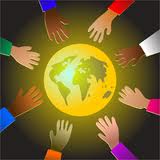 Microsoft’s founder and the richest man in the world, Bill Gates, announced his intent to the public that he would scale back his work at Microsoft and allocate more time to the charitable foundation he co-founded with his wife Melinda, on June 6, 2006.
Microsoft’s founder and the richest man in the world, Bill Gates, announced his intent to the public that he would scale back his work at Microsoft and allocate more time to the charitable foundation he co-founded with his wife Melinda, on June 6, 2006.
Ten days later, Warren Buffett, the second wealthiest man in the world publicly announced he was handing over his fortune to the Bill & Melinda Gates Foundation, which primarily focuses on improving global health.
The largest philanthropic foundation in the world had its beginnings and doubled to more than $60 billion.
Why would the wealthiest men in the world have such passion for one cause?
One reason for their dedication and philanthropic endeavor was they were saddened to find out that 3 million children die of diseases that are absolutely preventable.
In addition, they share in their concern about the inequalities between people living in different parts of the world.
Bill Gates addressed the World Health Assembly, a part of the World Health Organization, and stated the following:
“I first learned about these tragic health inequalities some years ago when I was reading an article about diseases in the developing world. It showed that more than half a million children die every year from “rotavirus.” I thought, “Rotavirus?”—I’ve never even heard of it. How could I never have heard of something that kills half a million children every year!?” Melinda and I had assumed that if there were vaccines and treatments that could save lives, governments would be doing everything they could to get them to the people who needed them. But they weren’t. We couldn’t escape the brutal conclusion that in–our world today—some lives are seen as worth saving and others are not. We said to ourselves: “This can’t be true. But if it is, it deserves to be the priority of our giving.”
Bill and Melinda Gates found global health.
Why Should We Care About Global Health?
First, health is a common experience for all humans.
It doesn’t matter what economic, social, or cultural differences we may have that set us apart from each other—all humans know what it is like to be sick, care for family members or friends who are ill or injured, and to mourn losing someone we love. This commonality should inspire compassion within us.
Second, people like Bill and Melinda Gates and activist, anthropologist, and physician, Paul Farmer have decreed that humans have a fundamental right to health.
Like water, shelter, and food, if health is a human need and right then many millions of people around the world don’t have access to basic levels of health care because of where they were born, how much money their family make, or other circumstances beyond their control.
If health is a human right, then regardless of the conditions that made them vulnerable to disabilities, illness, or premature death, people should have access to basic health care and prevention from preventable diseases.
Finally, globalization is constantly changing our economic and social makeup, as well as how we experience health. Our health and well-being is connected to everyone else.
Our personal health practices like eating nutritious food, frequent hand-washing, exercise, and getting vaccinations have the potential of keeping you, your family, and your co-workers healthy. However, infectious diseases like West Nile virus can fly over borders by birds that carry the influenza virus. In addition, insects are imported on leafs of lettuce and bananas.
This complex means and spread of diseases requires that we think beyond our households and local communities to the reality of global levels.
 Diseases Have No Boundaries
Diseases Have No Boundaries
The world is becoming more interconnected. Modern transportation allows infectious diseases to cross over our borders.
Good sanitation practices and enforcement of environmental laws geared towards keeping our food products safe is vital to our health and well-being.
The more educated and informed we are; how well we respond to safety hazards and infectious diseases, the healthier we become. Examine your values and consider what choices you make that may impact other people’s lives.
Consider taking a view on how you can become more involved in creating solutions to health problems.
You can make a difference in the lives of millions across the globe by becoming more involved in helping to form a healthier world.
Hi George,
The human body has a built in antivirus called the immune system. When the immune system is strong and healthy it can fight most diseases, but when it is compromised the smallest “bug” can have a devastating effect.
That’s right Justin! Sadly, microscopic cells can be deadly and if they spread uncontrollably they can kill millions of people. Over one third of the world population died from a plague hundreds of years ago. In the 1900 millions more faced mortality due to an infectious disease. Education and prevention can provide extra protection for us all…
As I mentioned above, George,
WE can be effectual in our Local surroundings.
Find groups dedicated to the Health and Welfare of the Community and Volunteer.
A weekend cleaning up Hazards can be very rewarding
You’re absolutely right, Chuck! I appreciate you sharing your insight on the matter of volunteering our time and energy in providing health and welfare for residents in our local communities.
However, keep in my that infectious diseases have no boundaries. There are many people traveling around the world that can, (and have), spread infectious diseases like SARS and HIV/AIDS that cause morbidity or mortality. The world is getting smaller since we have the ways and means to travel long distances by land, air, and sea in short periods of time.
Nonetheless, we must be informed and practice preventive health measures, locally. Times are changing…
Hi..George..Keep up this good work. Hope i can share worth info for my high school students so they take care of our mother earth and be responsible being.
Salleha, feel free to share the information if you like. Also thank you for your encouraging words! I’ll continue to do my best to provide more…
its great that people are so giving, but i feel that if everyone would look out for those around them (the people in their community) and make sure people have what they need, then it would help a great deal more than handing money to these corporations that use the money for themselves, and actually give a very small percent to the people they claim it goes to.
Thank you for sharing your thoughts and opinion, flimflamsam. I realize your perspective. However, not all “non-profit” organizations are corrupt. Not all “charities” horde the donations they receive.
For instance, does the Red Cross, UNICEF, Bill & Melinda Gates Foundation, and WorldVision have a reputation of unethical practices?
Here’s a link to the American Institute of Philanthropy that rates various charitable organizations: http://www.charitywatch.org/toprated.html
I agree FlimFlamSam,
Over the past 50 years I have experienced much reward from allocating large amounts of Time to LOCAL benefit activities.
Never had a lot of capital to invest, but Time and Energy are our most valuable assets.
Interesting, the RETURN has been an automatic growth of all businesses
Chuck, it’s good to hear you have been successful at growing businesses, automatically by devoting time and energy in local beneficial activities. However, devotion for non-profit causes do not always guarantee success for those who donate their time, or the cause itself.
I have witnessed individuals donating retail space at local stores to do fundraising and promote the sales for children with mental and physical disabilities and no homes.
The children make crafts and try to sell to local residents and tourists–crafts like plants, candles, little stuffed animals, etc. The fact is, in this situation, at this local gift store, no one buys their products. The products are displayed as non-profit charitable products from the organizations–however, people say: “Oh, that’s nice…” and walk away empty handed.
On the other hand, when “food” and/or “alcohol” are available, no matter what cost, not matter at what local event, people flock to get hot dogs, donuts, pizza, beer, etc. They have no problem parting with their money when it comes to food and alcohol. I’ve seen this type of behavior all across the United States and countries throughout Europe.
George,
What a great article! It is sad that millions of children die every day from diseases that can be prevented. I’m glad that some of the wealthiest people are doing something about it. Thanks for the video and keeping us abreast on what is happening all over the world.
Thanks,
Tina
Thank you, Tina! Let’s do our best for positive changes…
Hi George,
Great post on why health for all + our world is important ~ keep it comin!
Mark
Thank you Mark!